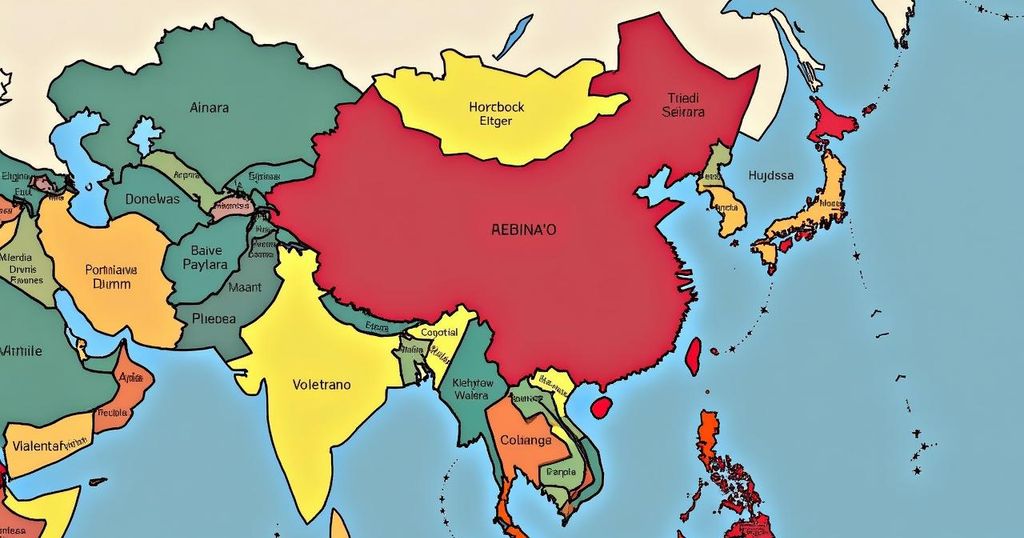The article examines the response from Asian States to the International Law Commission’s Draft Articles on Crimes Against Humanity, focusing on how AALCO records reflect varying positions from member nations. It highlights the need for collective action to influence future discussions within the UN’s Sixth Committee and advocates for AALCO’s relevance in shaping a unified legal stance on this crucial issue.
As support for the International Law Commission’s (ILC) Draft Articles on the Prevention and Punishment of Crimes Against Humanity (Draft Articles) continues to grow within the realm of the United Nations General Assembly’s Sixth Committee, a deeper examination of the positions held by Asian States through the lens of the Asian-African Legal Consultative Organization (AALCO) is pertinent. Established in 1956, AALCO serves as a platform for member countries to articulate their legal stances and facilitate the exchange of views on pressing international legal issues, with a focus on Asian-African perspectives. Since the Draft Articles were initially adopted and submitted to the General Assembly in 2019, progress has been hindered due to a lack of consensus regarding future steps. However, a breakthrough was achieved in the form of Resolution 77/249, which mandated two resumed sessions of the Sixth Committee on Crimes Against Humanity in 2023 and 2024. The first of these sessions showed significant engagement from various States, including several from Asia, with comments on the Draft Articles due by December 1, 2023, to assist preparations for the subsequent session. Asia’s response to the Draft Articles has been mixed. For instance, while Malaysia initially criticized the redundancy of the ILC’s work, it has since shifted to endorse the further development of these Articles. Meanwhile, other states such as China and India have voiced concerns about the necessity and utility of a specialized convention, positing that existing frameworks, particularly the Rome Statute, already impose sufficient obligations on member States to address crimes against humanity appropriately. Conversely, countries like the Republic of Korea and Vietnam have shown support for the initiative, advocating for the inclusion of specific legal definitions and provisions, particularly relevant to mutual cooperation and legal assistance. Despite the renewed discussions on these Draft Articles, AALCO has not formally included the topic of Crimes Against Humanity on its agenda since 2019. The organization stands at a pivotal point, where member States could proactively refer the subject back to AALCO to ensure that a collective Asian-African stance is established. Such actions could enhance the relevance of AALCO and promote a united voice within the global discourse on international law, especially regarding the fundamental responsibility of States to prevent and address crimes against humanity through domestic prosecutions and enhanced inter-State cooperation. Overall, the looming engagements in the Sixth Committee represent a crucial moment for Asian States. Their involvement will likely influence the framework for the proposed convention and ensure that the specific realities, practices, and interests of the region are adequately represented and addressed.
The article discusses the evolving landscape surrounding the International Law Commission’s Draft Articles concerning Crimes Against Humanity, specifically focusing on the response from Asian States as recorded by AALCO. AALCO provides a vital platform for Asian and African nations to engage in discussions about international law and determine collective legal positions on critical issues. As the draft progresses through the United Nations’ Sixth Committee, the mixed responses from various Asian states highlight the complexities in garnering a consensus on crimes against humanity amid established international legal frameworks like the Rome Statute.
The ongoing dialogue surrounding the Draft Articles on Crimes Against Humanity, as articulated by AALCO and Asian States, underscores the necessity of active participation from the region. The contrasting positions among member States demonstrate a critical need for a unified approach to enhance the global discourse on accountability for such crimes. As the discussions advance, it will be integral for Asian nations to engage collaboratively to influence the potential outcomes of the proposed convention, reinforcing AALCO’s position as a relevant regional actor in international law.
Original Source: opiniojuris.org






